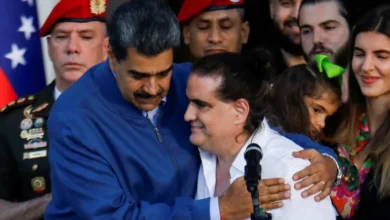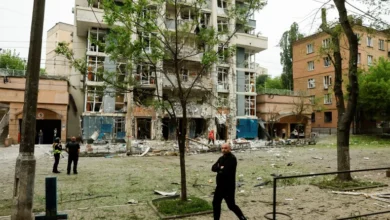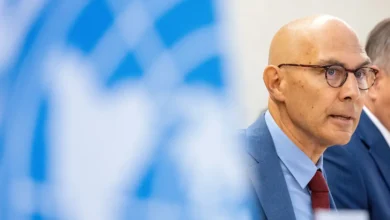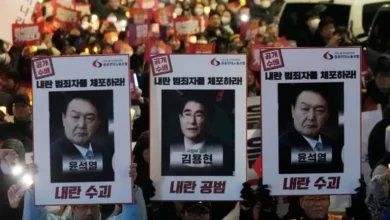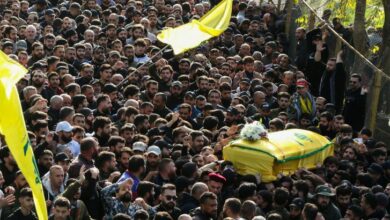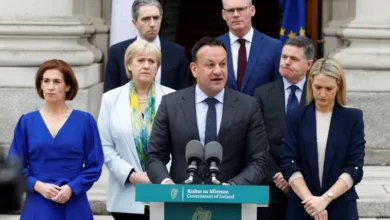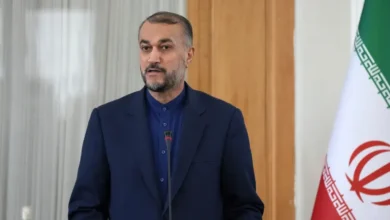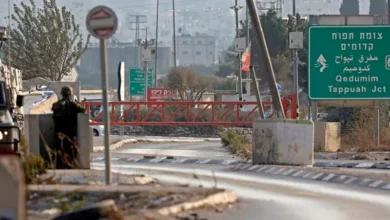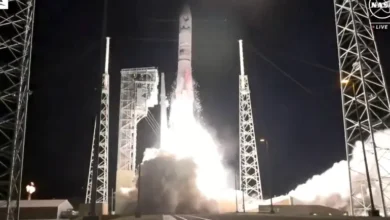Turkey at a crossroads: Sultan vs democrat election puts country’s future on the line
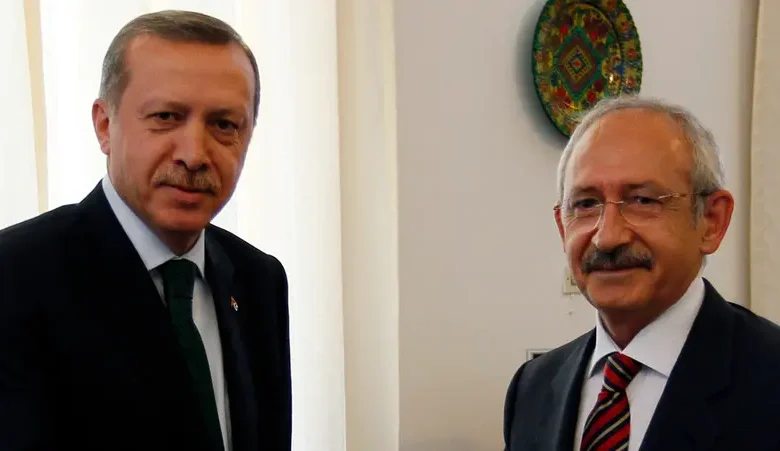
Still reeling from a series of deadly earthquakes and the chaotic aftermath, Turkey finds itself at a crossroads. Citizens head to the ballot boxes to vote for their next president on May 14. The main contenders – one labeled a sultan and the other a champion of democracy – will face off in a tight race while offering contrasting visions and proposing to steer the nation down dramatically different paths.
This landmark election serves as the biggest political challenge of President Recep Tayyip Erdogan’s long career, and as the opposition’s best opportunity to end Erdogan’s reign and upend a slew of his policies across a wide spectrum of fields.
The pivotal presidential and parliamentary elections will not only determine Turkey’s leadership but also impact the governance style of the country of nearly 85 million. These elections will likely redefine economic, societal, and security policies, as well as shape the framework of the country’s foreign policy, which will in turn affect Turkey’s standing on the global stage.
Should Erdogan win the upcoming election, he will have secured himself a third term as president of Turkey, an unprecedented feat. Should such a scenario unfold, analysts anticipate more consolidation of power and further erosion of democratic institutions in the country.
However, the odds may not be in his favor this time around. A poll published May 2 by Istanbul-based pollster Turkiye Raporu showed the opposition candidate Kemal Kilicdaroglu leading the race by 3-4 points.
“The upcoming election is crucial for the future of Turkey. Kilicdaroglu is committed to working toward a more inclusive and democratic country, whereas Erdogan is focused on retaining power and maintaining the status quo… [It] is evident that the choice voters make will have far-reaching consequences for Turkey’s future,” wrote the executive director of Istanbul-based think tank IstanPol Institute, Seren Selvin Korkmaz, in an article published by the Middle East Institute (MEI).
Here’s everything you need to know ahead of Turkey’s landmark elections:
Erdogan’s legacy
Erdogan is acknowledged as the most powerful leader in Turkey’s modern history. His impressive political career, which started when he was elected prime minister in 2003, spanned the last two decades – as he never lost an election so far – and redefined Turkey’s identity domestically and its role in the global arena.
A look back at his tenure as Turkey’s leader will show that it has been marked by a shift towards a more conservative and religiously influenced society. The shift towards reinforcing Islamic values and traditions had an impact on several sectors including education and resulted in the introduction of more conservative laws.
Moreover, Turkey’s executive presidency, established in 2017, centralized power in the president’s hands. Critics argued this led to authoritarianism. Under this system, Erdogan has gained significant authority, allowing him to appoint ministers, senior judges, and issue decrees without needing parliamentary approval.
Also, Erdogan’s interventionist economic policies have had significant repercussions on Turkey’s economy and its citizens. Under his leadership, the Turkish government has sought to maintain low interest rates and stimulate growth through large-scale infrastructure projects and credit expansion. While these policies initially contributed to a period of strong economic growth, they eventually led to high inflation, a widening current account deficit, and a severe depreciation of the Turkish lira.
The common people in Turkey have faced the brunt of these economic challenges, as the crumbling value of the lira diminished their purchasing power, making it increasingly difficult to afford essential goods and services.
Furthermore, high inflation has eroded savings and impacted the stability of the financial sector, leaving many households and businesses vulnerable to economic shocks. Unemployment has also risen as a result of these economic woes, adding to the hardships faced by the Turkish population. Critics argue that Erdogan’s unorthodox economic policies and reluctance to heed the advice of experienced economists have exacerbated these issues, undermining the long-term stability and prosperity of the Turkish economy.
Economists maintain that Erdogan’s meddling in economic policies led to an unprecedented 85 percent inflation rate last year, the highest in 24 years, and a sharp decline in the lira’s value against the dollar, losing 90 percent of its value over the past decade. In March, the value of the lira weakened to a record low of 18.96 against the dollar.
This economic environment has left the public struggling with a cost-of-living crisis and has cost Erdogan some of his popularity and public support as Turks across the country blame the government for their financial woes.
Soner Cagaptay, director of the Turkish Research Program at The Washington Institute, argued in an op-ed that Erdogan has styled himself as Turkey’s “new sultan” thanks to the executive-style presidency and in the process took direct control of the economy. In the past, steady economic growth had been crucial to Erdogan’s success in elections; however, many argue that his unorthodox policies have led the country’s economy to a downward spiral.
“Erdogan’s power grab has pulled the carpet of economic growth and stability from under his feet—and with that, the large base that once supported him,” Cagaptay said.
Furthermore, Erdogan has faced criticism for his increasingly authoritarian approach to governance and reported human rights violations. Under his leadership, Turkey has experienced a crackdown on freedom of expression and the media, with numerous journalists, academics, and opposition figures arrested or imprisoned on charges of terrorism or defamation. The failed coup attempt in 2016 further intensified the government’s actions against perceived opponents, resulting in the dismissal or arrest of thousands of public servants, military personnel, and civil society members.
Additionally, Erdogan’s government has been accused of suppressing peaceful protests and adopting repressive policies that undermine the independence of the judiciary and other democratic institutions. These actions have raised concerns among human rights organizations, international observers, and some of Turkey’s Western allies, who view Erdogan’s rule as a threat to democracy and the rule of law in the country.
On the international stage, Erdogan employed a more assertive foreign policy, aimed at increasing Turkey’s influence in its region and beyond. This has included military interventions in Syria and Iraq to counter the perceived threat of Kurdish groups, as well as involvement in the Libyan conflict to secure Turkey’s interests in the Eastern Mediterranean.
Also, under Erdogan’s rule, Turkey’s relations with NATO experienced heightened tensions, as some of Ankara’s international policies clashed with the interests of the alliance, as exemplified by the contentious acquisition of the Russian S-400 missile defense system.
In addition, some NATO members were deeply concerned by Erdogan’s domestic policies. Accusations of democratic backsliding, media censorship, and human rights abuses have prompted criticism from Turkey’s Western allies, who view these actions as divergent from the shared values of NATO.
Who is Kilicdaroglu? What will a Turkey ruled by him look like?
Erdogan’s primary opponent is Kemal Kilicdaroglu, a prominent politician and retired civil servant who heads the Republican People’s Party (CHP) and is supported by the “Table of Six” – an alliance of six parties united in their opposition to Erdogan.
As the leader of the CHP, Kilicdaroglu has positioned himself as a strong advocate for democracy, secularism, and social justice. He has been critical of Erdogan’s government, particularly in areas such as human rights, freedom of expression, and economic policies. Under his leadership, the CHP has formed alliances with other opposition parties to challenge Erdogan and his ruling Justice and Development Party (AKP).
In an April interview with Time magazine, the 74-year-old presidential hopeful said: “This is an election for those defending democracy against authoritarian rule.”
Kilicdaroglu and the wider opposition – should they win – are planning to quash key Erdogan policies. They would re-establish the central bank’s autonomy, freeing it from government interference, overturn unorthodox economic policies, abolish the executive presidency, and reinstate the previous parliamentary system.
Kilicdaroglu’s campaign also promised solutions to the cost-of-living crisis which chipped away at Erdogan’s popularity over the past few years. The economic, finance and employment pillars of the opposition’s agenda included: permanently reducing inflation to low single digits within two years, bolstering the Turkish lira, doubling per capita income in dollar terms at the end of five years, and not imposing responsibilities on the central bank other than ensuring price and financial stability.
This is significant because the economy will serve as a do-or-die issue as the public awaits a solution to the cost-of-living crisis which arguably impacts their lives most immediately out of all government policies. After all, the economy may function as the shaky cornerstone that triggers the fall of Erdogan’s empire and delivers a victory to the opposition, but it will also be the litmus test against which the new government’s success or failure will be assessed.
In addition, Kilicdaroglu plans to establish a more moderate government domestically and pursue a more balanced foreign policy that will aim to repair frayed ties with NATO, the US and the EU.
Turkey’s ties with the West would likely become friendlier should Kilicdaroglu win, as his secularist ideology would align with Western allies’ approach and would be a welcome change from Erdogan’s contentious tactics.
“Should Kilicdaroglu win, his victory will probably be greeted warmly in the West, where frustration has long simmered over Erdogan’s unpredictability, bluster, and neutralist — and, increasingly in recent years, authoritarian — tendencies,” wrote senior fellow on the National Security and International Policy team at the Center for American Progress, Alan Makovsky, in an article published by MEI.
Win or lose, how do analysts predict Erdogan will react?
Cagaptay posits that even if Erdogan lost the election with a small margin, he might resort to the “me or chaos” strategy in which he will warn the nation against the disastrous dangers of a “split government” and necessitate his return as president to safeguard the stability of the country.
“Either Erdogan will lose, giving Turkey a chance of restoring full democracy, or he will win and likely remain in power for the rest of his life. If he does so, any remaining independent institutions, including courts that have not yet fallen into his grasp, think tanks, universities, news outlets, and the foreign ministry, are likely to completely lose their autonomy, with important ramifications for not only Turkey’s political system but also its foreign policy,” Cagaptay contends.
Korkmaz concured with this view, writing in a policy note published by the Washington Institute that “should the opposition fail to notch a clear victory, Erdogan could prematurely declare himself the victor.” She argued that in such a scenario, “international actors should refuse to validate such an outcome.”
Regardless of which camp they belong to, what policies they support and how they view the odds of each candidate’s chance at victory, everyone is unanimous in the belief that this election is a defining moment for the state of democracy in Turkey.
Either way, history will be made.
